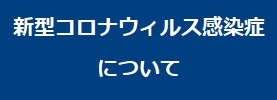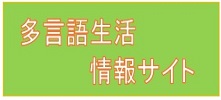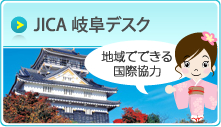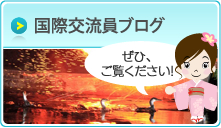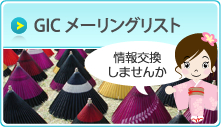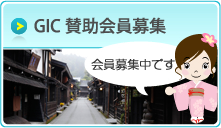 |
(2024.01.23) |
日本語と英語版があります。 This post is available in both Japanese and English, please scroll down for the English version.
...
和製英語と本格的な英語を比べましょう!
日本語の中には、英語が由来の単語が数多くあります。その多くは、英語と日本語が同じ意味で使われていて、「外来語」と呼ばれます。例えば、カメラ、タクシー、フォークです。
しかし、日本語と英語の意味が異なる場合もあります。それは「和製英語」です。今から和製英語の例と本来の英語の意味を紹介します。
- マンション:日本語で、「マンション」はアパートよりも丈夫な造り(鉄筋構造)や大型の集合住宅のことですが、英語で、「mansion(マンション)」は「大きい家」を意味します。お金持ちの人にしか買えない家です!「アパート」、「マンション」は日本語では建物の高さや大きさで区別しますが、英語ではそういう区別はありません。
- ベビーカー:英語で、「baby car」という単語がなく意味が通じません。イギリス英語で、ベビーカーは「pram」か「pushchair」で、アメリカ英語では「stroller」になります。英語で「baby car」と聞くと、思い浮かべるイメージは赤ちゃんのためのおもちゃの車だろうと思います。
- モーニング:特に中部地方の岐阜県と愛知県のカフェでモーニングの習慣が見られます。日本語のモーニングはコーヒーにトースト等が付く朝ごはんのセットメニューですが、英語でモーニングは「朝」という意味です。海外に行って、カフェで「モーニング」と注文しても誰も分からないと思います!英語で朝ごはんは「breakfast」なので、モーニングは「breakfast menu」になります。
- パラサイトシングル:これは日本の社会問題に基づいていますので、英語で直接の翻訳がありません。英語で「parasite」は「寄生虫」、「single」は「独身」です。適当な翻訳はありませんが、パラサイトシングルのような人は欧米にもいると思います!家賃を支払わなくてもいいように、大人になっても親と一緒に住んでいる人のことですね。しかし、欧米では急激な物価高騰が大きな問題になっていて、経済的に親の家に住むしかない若者が多くなっています。
- サラリーマン・オフィスレディ(OL):この2つの単語は会社等で働いている人に関する言葉ですね。「パラサイトシングル」と同じように、日本の社会を反映している言葉だと思います。英語では直接の翻訳がなく、「office worker」が一番近いです。欧米で日本の「サラリーマン」について聞いたことがある人もいます。「サラリーマン」と聞くと、日本の仕事文化を思い浮かべます。そのイメージはずっと残業している会社員です。英語では、会社員を性別で区別する表現はありません。「オフィスレディ(OL)」も「office worker」と言います。
- テンション:英語の「tension」と日本語の「テンション」の使い方は似ていますが、違いがあります。日本語で「テンション」は、悪いニュアンスと良いニュアンスの両方で使われます。しかし、英語で「tension」は、悪いニュアンスしかなく、ストレスや心配を表しています。日本語では「ハイテンション」という表現があり、楽しいイベントがある時など良い意味でも使えますね。
- ベッドタウン:以前は、サラリーマンが大都市で働き、家には寝に帰るだけという意味で郊外の住宅地が「ベッドタウン」と呼ばれるようになりました。英語では「bed town」ではなく「commuter town」と言っています。「タウン」は同じですが、「commuter」の意味は通勤者です。
- カンニング:日本語で「カンニング」は名詞ですが、英語の「cunning」は形容詞で、意味は「悪賢い」か「ずるい」です。カンニングしている人はずるい人なので、日本では「カンニング」という言葉が定着したのかも知れません。しかし、英語で「カンニング」は「cheating」になりますので、「カンニング」は和製英語です。「カンニングをする」は「cheat」か「to cheat」になります。カンニングしている人は「a cheat」か「a cheater」です。
- コンセント:イギリス英語でコンセントは「plug socket」と言い、アメリカ英語では「power outlet」になります。日本語で「コンセント」は「コンセントリックプラグ」から来たようです。英語で「concentric」の意味は同心円状ですが、「コンセント」という意味はありません。「Consent」という単語もありますが、その意味は「承諾」か「納得」なので、まるっきり違います。
- ゴールデンアワー:「ゴールデンアワー」は英語で「prime time television」になります。英語で「television」は、略して「TV」と言っています。イギリス英語では「TV」だけでなく、会話では「telly」と言ったりもします。「golden hour」は、最近、SNS上で日本語と異なる意味でよく使われています。それは、日没前の空が金色になる時間帯を表します。夕日が照明となり、可愛く撮れます。インスタ映えする写真が撮れる時間です!
- ホッチキス:英語で「ホッチキス」は「stapler(ステープラー)」と言います。「ホッチキス(Hotchkiss)」は、昔、アメリカにあったホッチキスメーカーの名前です。この会社は、現在はないので、ほとんどの欧米人はこの会社の名前を聞いたことがありません。
- ピアス:日本では、多くの日本人女性はピアスではなく、イヤリングを付けています。しかし、欧米では年齢に関わらず普通にピアスを付けます。ピアスだけを売っているお店も普通です。英語で「ピアス」は「earring(イヤリング)」と言い、日本で「イヤリング」と呼んでいるものは「clip on earring」になります。「clip on」は「はめる」という意味です。欧米でイヤリングを付けることは珍しいです。小さな子どももピアスを付けています。例えば、私は9歳の時にピアスの穴を開けました。イギリスではほとんどの女性は10歳になる前からピアスを付けていて、特別に厳しい親がいる場合に、付けていないようです。学校では、大きく派手なピアスはだめですが、シンプルなピアスを付けるのは大丈夫です。英語の「piercing」は「ピアスホール」という意味です。そのため、「ピアスホール」も和製英語です。日本語の「ピアス」は英語の「pierce」が由来ですが、「pierce」は「刺す」という意味の動詞です。
- パソコン:日本語には英語より多くの略語が存在します。パソコンは「パーソナルコンピューター」の略語です。英語でも元々は「パーソナルコンピューター」を使っていたようですが、現在、日常会話でほとんど使われていません。パソコンは英語では単に「computer(コンピューター)」と言っています。ノートパソコンは、「laptop(ラップトップ)」と言います。
- マグカップ:英語ではただ「mug(マグ)」と言えば「大きなカップ」を意味します。「cup(カップ)」も英語ですが、一緒に使うことはありません。
他の外国語からの番外編:
- アルバイト:アルバイトは英語ではなくて、ドイツ語が語源です。しかし、ドイツ語で「Arbeit」の意味はパートタイムの仕事ではなく、「労働・仕事」全般を意味します。そのため、フルタイムやプロパー職員の仕事も含みます。
- ルージュ:日本語ではフランス語を語源とした外来語も多く見られます。例えば、「アンケート」や「カフェオレ」です。しかし「ルージュ」はフランス語の本来の意味と少し異なります。フランス語で「rouge」の意味は赤色ですが、日本語では口紅の意味があります。フランス語で口紅は「rouge à lèvres」になります。「lèvre」の意味は唇です。
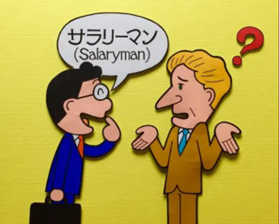 ..
..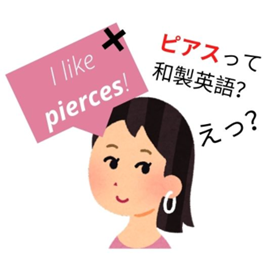
....
...
What is "wasei-eigo"?
There are many English loan words in Japanese, or loan words from other languages, which are written using the katakana syllabary. Many of these words, such as camera (カメラ, kamera), taxi (タクシー, takushi) and fork (フォーク, foku) have the same meaning in Japanese and English.
However, there's another category of vocabulary called "wasei-eigo" which are words which have come from English, but have a different meaning in English and Japanese. Additionally, sometimes English words are combined into phrases in Japanese which do not exist in English. In Japanese wasei-eigo, 和製英語, literally means "Japanese-made English", so are pseudo-English words coined in Japan. For this post, I will introduce some wasei-eigo!
- Mansion, or "manshon": While in English, a mansion is a large house where someone with a lot of money may reside, in Japanese a "マンション", or "manshon" is a large apartment building or block of flats with sturdy construction (e.g. a reinforced concrete structure). If an apartment building is smaller with fewer storeys it is called an "アパート", "apato", although the difference between a "manshon" and an "apato" is a bit difficult to define for Japanese people, and opinions vary.
- Baby car, or "bebi-ka": Saying "baby car" in English brings to mind a toy car for children, but in Japanese a "ベビーカー", "bebi-ka" is a pram or pushchair in British English, or a stroller in American English.
- Morning, or "moningu": In English the morning is simply a time of day, but in Japanese "モーニング", "moningu" is used to describe breakfast or more specifically, a special breakfast time set at a café, which is often Western-style, including coffee and toast. Sometimes you can get toast and eggs included in one of these sets for the price of the drink alone, and this type of set is particularly famous here in central Japan, notably in Gifu and Aichi, as it is said to have originated from the latter. In Japanese the time of day morning is "朝"(あさ), "asa".
- Parasite single, or "parasaito-singuru": The funny phrase "パラサイトシングル", "parasaito-singuru" is used to describe an adult who chooses to stay at their parents' house, living off them instead of opting to move out. The person in question is single and is staying at their parents' place to have a more carefree and comfortable life, avoiding the responsibilities which may come with living independently. While we don't have a direct translation for this phenomenon in English, there may also be people who stay living with their parents out of ease in western countries. That being said, there are also an increasing number of young people who live with their parents out of necessity due to prohibitively expensive rent prices in the UK and other countries.
- Salary man, or "sarari-man", and office lady, or "ofisu-redi" (OL): The phrase "サラリーマン", "sarari-man" has become quite famous even outside Japan, largely due to the persisting idea that Japanese working culture is strict and involves working long hours. "Sarari-man" means office worker, although the nuance between an office worker in English and a Japanese "sarari-man" differs due to the Japanese cultural connotations attached to it. In English, we don't have a clear distinction in vocabulary for male and female office workers, but in Japanese a woman who works in an office can be called an "オフィスレディ", "ofisu-redi", abbreviated to "OL". It is possible that this distinction exists due to the differing roles that men and women held in the early days of office work in Japan.
- Tension, or "tenshon": The meaning of tension in English and "テンション", "tenshon" in Japanese are fairly similar compared to the other examples on this list. However, there is a key difference in that the meaning of tension is wholly negative, invoking stress or worries, while in Japanese "tenshon" can be both positive and negative, depending on the circumstances. There is a Japanese phrase "hai-tenshon", (literally "high tension"), which describes something exciting. On the other hand, if you heard something described as "high tension" in English, you'd assume it was a high-pressure situation!
- Bed town, or "beddo-taun": It's not difficult to work out what a "ベッドタウン", "beddo-taun" might be in Japanese; it's a commuter town, which makes perfect sense as a town where people only go to bed and wake up, before commuting to a bigger town or city nearby for work or school.
- Cunning, or "kanningu": Setting it apart from others listed here, while cunning is an adjective in English, "カンニング", "kanningu" is a noun in Japanese. In fact, "cunning" person in English might carry out "kanningu" in Japanese, because "kanningu" is cheating, for example on a test.
- Consent, or "konsento": I know what you may be thinking, but "コンセント", "konsento" has nothing to do with the English "consent", which means giving someone else approval to do something. Rather, a "konsento" is a plug socket or power outlet, in British and American English respectively. The Japanese word "konsento" seems to have originated from the English word "concentric", in "concentric plug", which was the name given to plug sockets when they were first introduced in Japan, supposedly due to their shape.
- Golden hour, or "goruden-awa": Not to be confused with social media-originated slang, in Japanese "ゴールデンアワー", "goruden-awa" means prime time television. Recently, in English golden hour refers to the hour or so before sunset, during which time the sky turns golden creating the perfect lighting for photos.
- Hotchkiss, or "hocchi-kisu": Perhaps the most difficult to decipher from the Japanese, a "ホッチキス", "hocchi-kisu" is a stapler. Hotchkiss was an American stapler-producing company around the turn of the 20th century, and although they are long gone and largely forgotten, because they were an early exporter of staplers to Japan, "hocchi-kisu" became the generic term for a stapler in Japan, in the same vein as Tupperware, Jacuzzi or Thermos in English.
- Pierce, or "piasu": Not only is "ピアス" , "piasu" wasei-eigo, it also demonstrates a cultural difference between Japan and western countries. In Japan, school rules regarding ear piercings are quite strict, and as a result it is normal for women to wear clip on earrings, even into adulthood. On the other hand, in the west it's normal for girls to get their ears pierced quite young, as wearing stud earrings to school is usually allowed. Some teenaged girls even get multiple piercings beyond just their first earlobe piercing. Personally, I got my ears pierced when I was 9 years old, and by that point lots of other girls my age had already had their's done. Only girls with strict parents got them done later, e.g. in their teens. The wasei-eigo word "piasu" is used for normal earrings, which go through a piercing. Whereas, the Japanese word "イヤリング", "iyaringu", from "earring" is used for clip on earrings, which are the norm, and so far more common that in the west, where they are very rare. If you go into a Japanese accessory shop, you will usually find a mixture of "iyaringu" and "piasu", with about half of each, and they will be clearly labelled to avoid mistakes. When buying a pair, the shop attendant will normally double check that you've chosen the right type. This is something English speakers have to get used to in Japan, as it is natural for us to assume that "iyaringu" are normal earrings.
- "Pasokon", from personal computer: In Japanese abbreviations are very commonly used. For example, "就職活動"(しゅうしょくかつどう), "shushoku-katsudo" is job-hunting, and it is very commonly abbreviated to "就活"(しゅうかつ), "shu-katsu". An example of an English loan word which is often abbreviated is "メイクアップ", "meiku-appu", makeup in English, which is shortened to "メイク", "meiku". "Paso-kon" is another example of an abbreviation, as it comes from the English "personal computer". You could argue that this isn't really wasei-eigo, since we do use personal computer, normally as the initials PC in English. However, simply saying "computer" or "laptop" is more common in English nowadays, and as an abbreviation "pasokon" doesn't resemble the original English as much as the longer version, "パーソナルコンピューター", "pasonaru-konpyuta". In Japanese the phrase "ノートパソコン", "noto-pasokon" is used for a laptop.
- Mug cup, or "magu-kappu": Very similar to the English (you could also say that this isn't fully-fledged wasei-eigo), a "マグカップ", "magu-kappu" is simply a mug. If you just say "magu" or mug in Japanese without adding "kappu" or cup, people may not understand what you mean. You may be asked if you want a "magu-kappu" when dining in in a café that also offers takeaways, such as Starbucks.
Extras from other languages:
- "Arubaito", from the German "arbeit": In Japanese, "アルバイト", "arubaito", which can be abbreviated to "バイト", "baito" is specifically a part time job. On the other hand, in the original German "arbeit" refers to any job, whether it be fulltime, part time, permanent, etc.
- "Rujyu", from the French "rouge": As with English, there are quite a lot of French loan words in Japanese, such as "アンケート", "anketo", from "enquête", which means survey in both Japanese and French. Many other French loan words are food-related, such as "カフェオレ", "kafe-ore" from "café au lait"; coffee with milk. However, while "rouge" in French is the colour red, in Japanese "ルージュ", "rujyu" is lipstick. In French lipstick is "rouge à lèvres", as "lèvre" means lip, so it isn't far off the Japanese. In English, "rouge" is another word for the makeup item blush, although this has fallen out of common use.
写真の出典・Image sources
左側、left side:https://blog.goo.ne.jp/yamac002/e/c7adc691361ecf6a9b0d5766bd7245f7
右側、right side:https://kaigai-yuki.com/pierced-earring-2396

